Passenger train services • Main line services / Ticketing • Intercity • Private mainline operators • Austria • WESTbahn
➤ Similar operators: Acela – Avanti West Coast – Flixtrain – LNER – Lumo – ÖBB Railjet
Note: For educational purpose only. This page is meant purely as a documentation tool and has no legal effect. It is not a substitute for the official page of the operating company, manufacturer or official institutions. It cannot be used for staff training, which is the responsibility of approved institutions and companies.
Read the full package on WESTbahn:
The company → Rolling stock → Train services → Economics
Summary
WESTbahn GmbH is an Austrian railway company founded in 2008 and is a 100% subsidiary of Railholding AG. The name WEST is not derived from the Vienna-Salzburg line, which bears the historic name of Westbahn, but from the four letters of the founder, WEhinger STefan, a former executive of the state-owned ÖBB. It’s a case of serendipity…
The owner of Westbahn is Railholding AG. It was founded on 16 October 2008, and was 50% owned by Stefan Wehinger and Hans Peter Haselsteiner (photo). SNCF acquired a 26% stake in June 2012.
Co-founder Stefan Wehinger left the company in 2012 and sold his remaining shares. He was replaced by Erich Foster, also a former ÖBB executive, who is still in post in 2018. Today, the capital has been split between the Haselsteiner family’s private foundation (49.9%), Kolomani Holding GmbH (32.7%) and SNCF (17.4%).
Originally, Railholding AG held 49% of WESTbus, reminiscent of Regiojet or Flixtrain. But in 2016, Rail Holding withdrew from the bus business and sold its 49% stake to Blaguss.
The arrival of a competitor on Austrian tracks has not been an easy one. On 30 June 2009, a framework agreement on the allocation of infrastructure capacity for the years 2011 to 2016 was signed with ÖBB Infra. From the outset, the aim was to offer an hourly service between Vienna and Salzburg. At the time, ÖBB was in the midst of launching its new Railjet concept. But the Austrian Infrastructure manager is part of the same holding company as the public transport operator…
Operator: Westbahn Management GmbH
Subsidiary / shareholders: 100% de Railholding AG (49,9% Haselsteiner, 32,7% Kolomani Holding, 17,4% SNCF Développement)
Sector: Passengers transport
Type of service: Main line
International transport: yes
First services: 11 December 2011
Train type: Stadler KISS, CRRC
Manufacturer(s): Stadler, CRRC
Driver service: own
Officiel website: https://westbahn.at/en/
Social media: :
Similar companies : IC Deutsche Bahn – Railjet
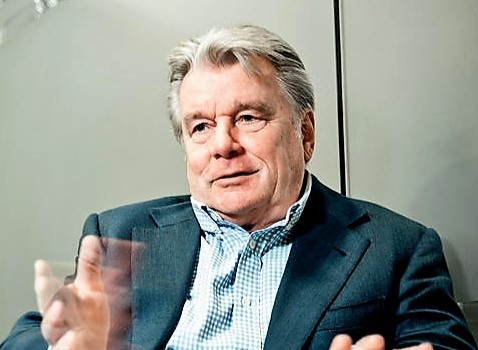
Routes
➤ Vienna Westbahnof – Linz – Salzburg – (partially) Munich – Stuttgart
➤ Vienna Westbahnof – Linz – Salzburg – Innsbruck – Feldkirch – Bregenz
Rolling stock (past and present)
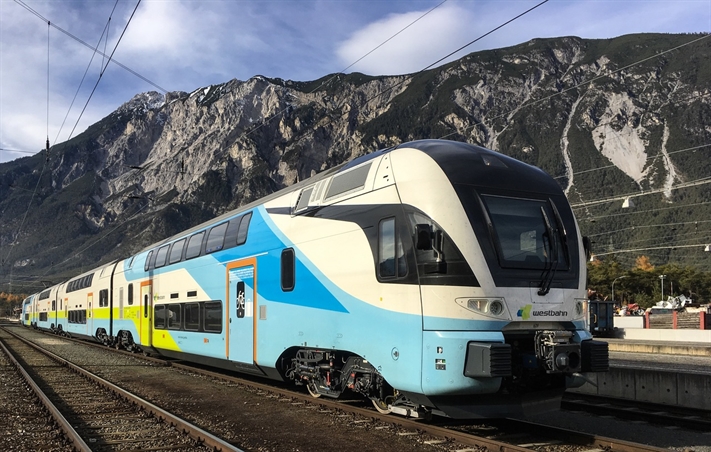
4010 001–007
KISS 2 (†)
4010 008
4110 009-017
2011 – 2021
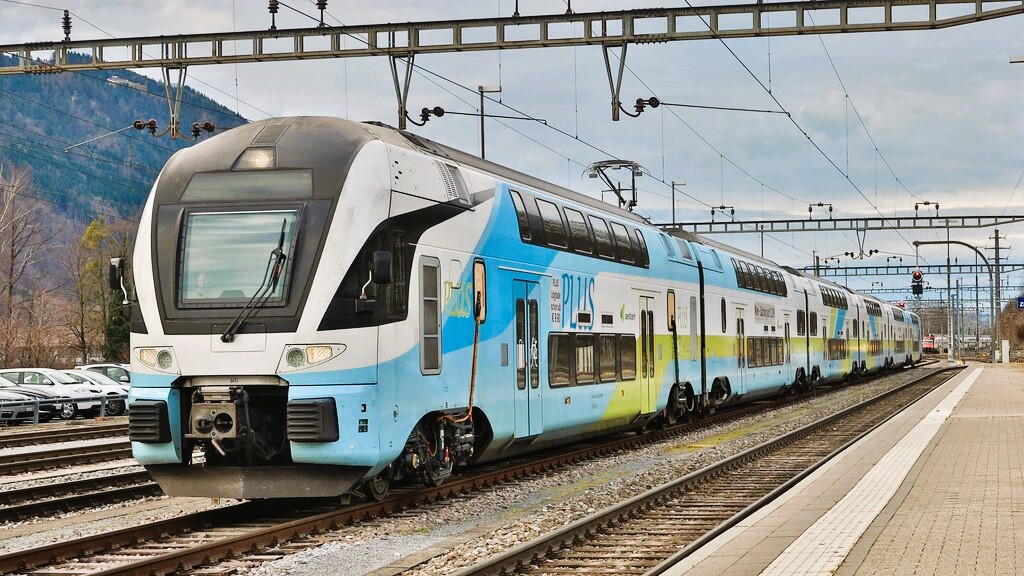
4010 018–032
2021 – …
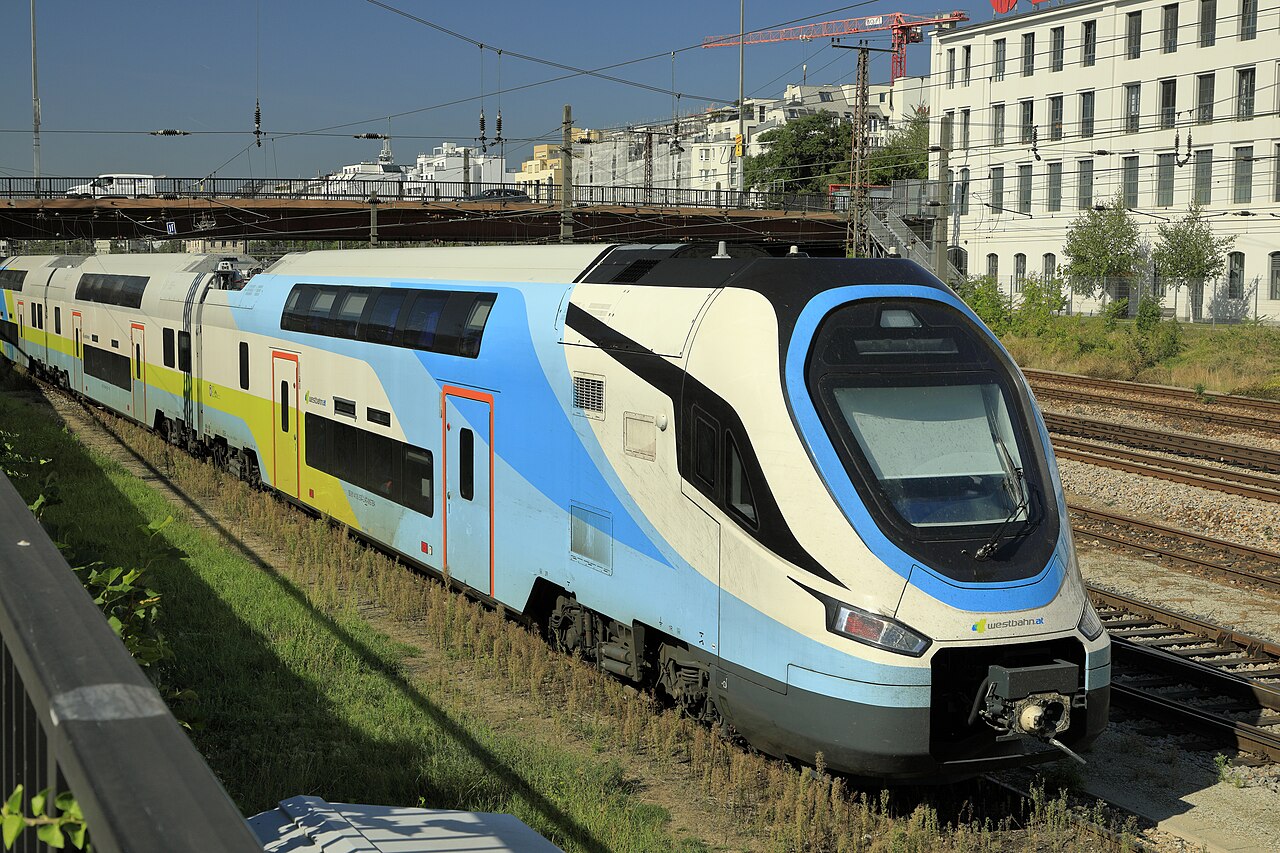
4100
… – …
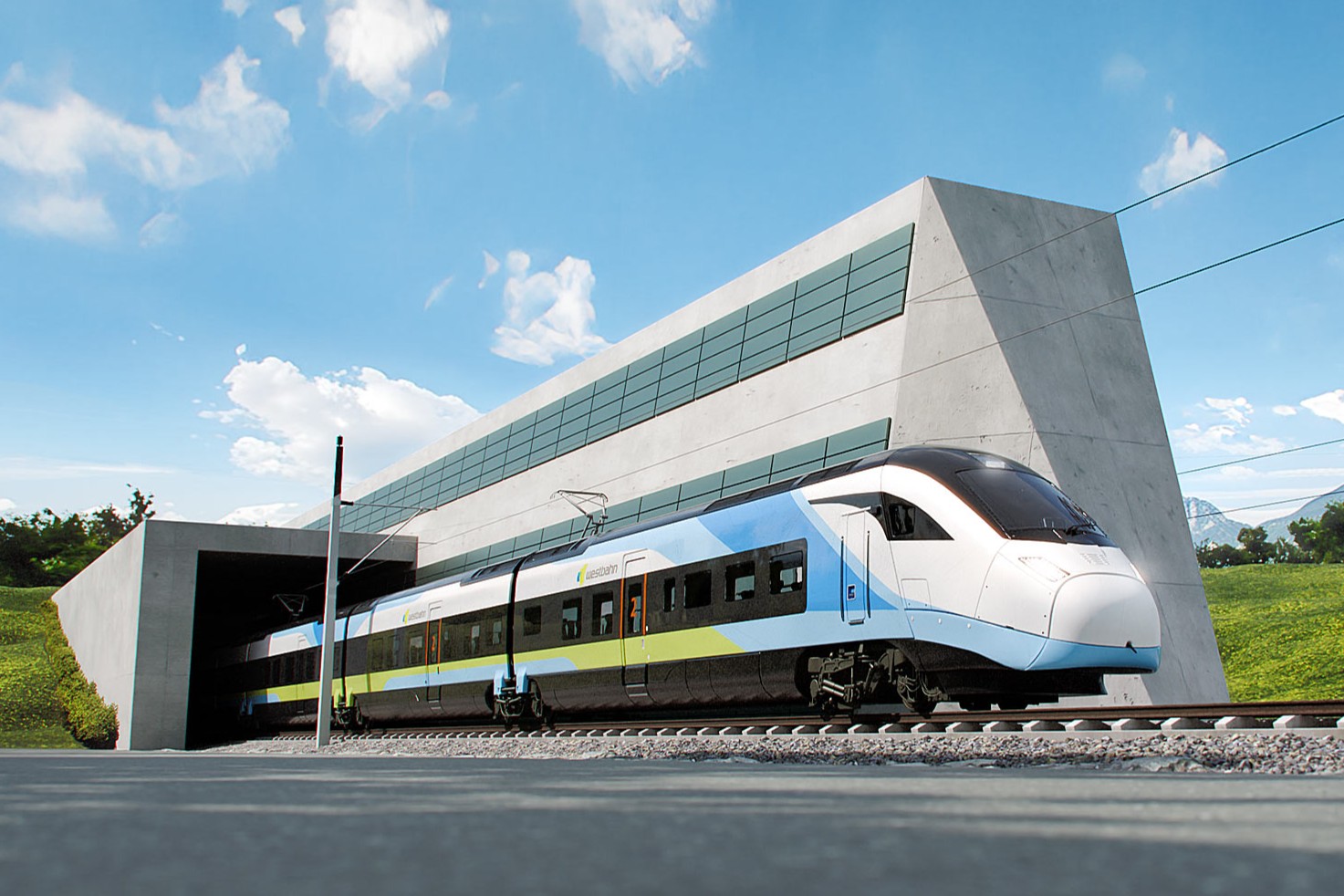
….
2026 – …
2011 – The start of operations
On 11 December 2011, the first WESTbahn trains began a new adventure on the mainline segment in Austria, between Vienna and Salzburg.
Rolling stock
As always for a new entrant, the number one challenge is to procure rolling stock. Unlike RegioJet, Flixtrain and Railcoop, WESTbahn chose to acquire new rolling stock. The operator opted for a multiple unit rather than a tractor unit. But which manufacturer was offering self-propelled trainsets for long-distance traffic at the time? Stadler seemed to be the manufacturer with the best arguments. The Swiss manufacturer was selling a long-distance version of the self-propelled train, which differed from local rolling stock in that it had different seating arrangements, larger luggage racks and so on. WESTbahn therefore chose the KISS multiple unit.
These Stadler KISS 1 and KISS 2 railcars were financed in two tranches: 2009 and 2014. The conditions were not ideal, as we will later see, because the financing package involved Swiss export risk insurance (Serv), credit insurance for public contracts in Switzerland, which proved very expensive for a small operator like WESTbahn. Another bitter observation: as a small private operator just starting out, banks are reluctant to take what could be perceived as a major risk in financing a fleet of trains.
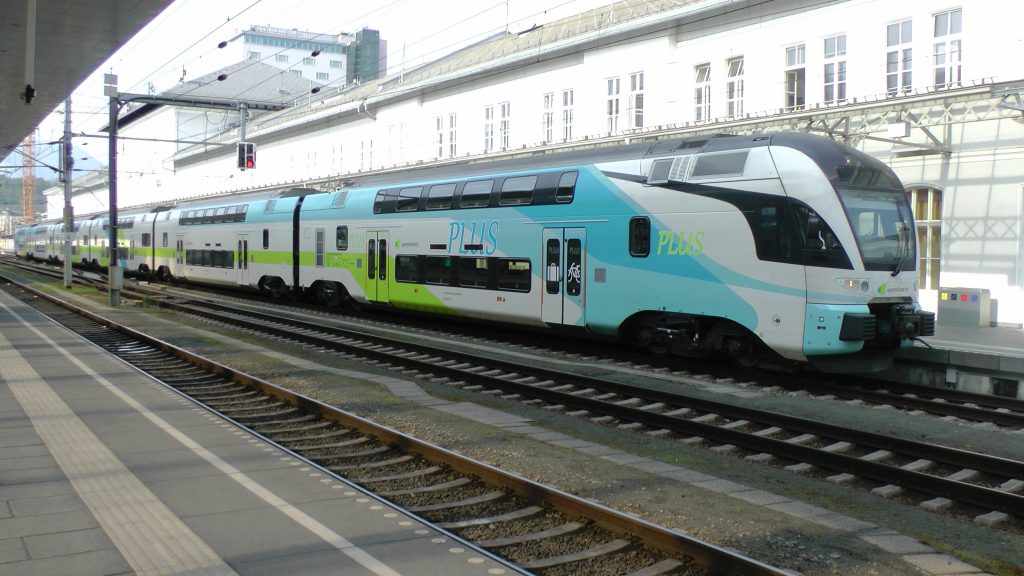
Why not opt for the more favourable Eurofima conditions for rolling stock? WESTbahn replied that Eurofima is in itself an extremely interesting vehicle for obtaining cheap financing for passenger and goods trains. But it is a body closed to state railways only, which is based on state contracts, but contrary to its name, has nothing to do with the EU – Switzerland and Serbia are also members. But there is no chance of joining without a transport service contract.
Current interest rates are also making it more difficult for national railways to finance their vehicles. With Eurofima, Europe’s national railways have access to a credit facility that operates with state guarantees and very low interest rates, from which private rail operators are excluded. Access to Eurofima has also been limited to public transport operators.
Since the launch of WESTbahn in 2011, Stadler has been responsible for the maintenance of Kiss trains via its workshop in Linz. The Austrian company did not dispose of its fleet of 17 trains until mid-2017. With this extension, all maintenance was transferred to Vienna.
Despite a ruthless price war with the ÖBB, WESTbahn gradually managed to carve out a place for itself on the Austrian market, while remaining confined to the Vienna-Salzburg route, but already with ideas for expansion towards Innsbruck.
2018 – Two networks and a sales offensive
“For the first time with the new offer, we have produced a TV advertising campaign in which we present the new range,” Forster told the International Railway Journal. “We also have active teams in stations and shopping centres to promote the service. They hand out leaflets to customers with timetables and pricing information. We have some presence on social networks, but not too much, and when we looked at our strategy, we found that print is the most effective channel we use.
Challenges to overcome
The first 7 years of WESTbahn were a commercial success: in 2017, WESTbahn carried 5 million passengers, with revenues up by 5%. But financially, the losses were mounting.
The first cause was the leasing obligations, which were clearly very expensive. “We bought our first trains [seven six-car Kiss 1 trainsets] in 2009 and our second series [nine four-car trainsets and one six-car Kiss 2 trainset] in 2014,” explains former CEO Erich Forster. “2009 was not an easy year, especially for a newcomer, because of the economic crisis in Europe. In general, the financing conditions were not really favourable to our company. It was both the length of time we had to finance the trains and the terms and conditions, because we had to take out credit insurance to get reasonable terms from the bank.”
Erich Foster explains the problem: “Swiss export risk insurance (Serv), the credit insurance for public contracts in Switzerland, is really not cheap. As long as you have to work with Serv, you have a lot of extra costs. We also found that if we didn’t use Serv, the conditions for reimbursing the premium were not favourable to the customer. The situation was really critical. It was virtually impossible to change these financing conditions. So the sale of the fleet and the purchase of a new one opened up a whole new perspective and radically changed the situation“.
Other concerns have undermined WESTbahn’s finances. For example, the massive increases in rail tolls since 2011. This charge for using the infrastructure, which is ultimately paid by ÖBB taxpayers, has risen by around 40% – a clear disadvantage for WESTbahn, which concedes, however, that there has been a stabilisation in the years 2016-2017.
All these various impediments – and others – contributed to WESTbahn’s cumulative loss of around 83 million euros in mid-2019. Hans Peter Walsteiner noted with frustration that “every year, ten million euros escaped into thin air, and that’s something I can no longer see”. The Supervisory Board therefore prescribed a “stop loss strategy” for WESTbahn’s management to turn things around, despite the fact that the company had carried more passengers than ever before – 6.6 million in 2019 compared with around 6.1 million in 2018.
2019 – Recovery measures
As a consequence of the loss elimination strategy, WESTbahn took the surprising decision in the middle of the year to dispose of its 17 KISS 1 and 2 trainsets, in two stages, in response to Deutsche Bahn’s call for tenders for a fleet of used double-deck railcars.
The reason for this decision is the consequence of what was mentioned above: the leasing contract was concluded at a time of high interest rates.
The 15 double-decker trains were again ordered from Stadler in Switzerland, but this time under quite different financial conditions. The order was financed by Austrian Train Finance, part of PCS Holding, a company owned by Stadler Chairman Peter Spuhler. Austrian Train Finance leases the trainsets to WESTbahn. Erich Forster, who was CEO of WESTbahn at the time, explained that, in the end, the speed of delivery of the trains, which had already been approved, was the decisive factor in continuing the collaboration with Stadler. “We obtained extremely cheap financing for our new fleet,” he explained at the time.
So the CRRC threat seems to have worked. For his part, Peter Haselsteiner admitted at a press conference that “Stadler fought hard” to win an order worth 292 million euros, and had – and this was the key point – offered much more attractive financing terms than in 2008.
The first remedial measure was therefore implemented. The second was even more radical.
Back to only one network
The disappearance of the Blue Line in 2019 came as a shock: the end of the growth strategy and even a reduction in the volume of train operations. WESTbahn will refocus its operations solely on Vienna’s WESTbahnhof station (where its head office is located). “Our connection to the new Hauptbahnhof and Praterstern stations in the east of Vienna entailed additional costs in rail tolls, but in the end did not bring in any additional revenue,” explained WESTbahn’s management as a good businessman.
So why not opt for a single line departing from the Hauptbahnhof rather than the old WESTbahnhof? This would have saved one train in the Vienna-Salzburg rotation and eliminated costs to the Hauptbahnhof. So we both save on train path costs. What’s more, WESTbahnhof is perfectly linked to Vienna’s public transport network, both tram and underground.
In addition to these various measures, WESTbahn’s results were also improved through partnerships with other railways. With its surplus pool of drivers, WESTbahn operated RegioJet trains on the Austrian sections of the Vienna-Prague and Vienna-Budapest services. A similar agreement was reached with Meridian, where the two companies cooperated commercially, selling tickets for each other’s services. Meridian and WESTbahn have a connecting presence at Salzburg station.
2020 – The Pandemic time
The railway’s darkest period, sparing no-one, private or public. In 2020, WESTbahn had an occupancy rate of 15% at the height of the pandemic. In order to maintain rail traffic between Vienna and Salzburg during the pandemic and the abyssal fall in passenger traffic, ÖBB and WESTbahn received exceptional financial support from the Austrian State via its Ministry of Transport, held by the Austrian Greens, a detail that counts…
The federal government paid 83.5 million euros to maintain the timetable for long-distance trains, whether or not there were passengers. At the time, €73.5 million was paid to ÖBB, and €10 million to WESTtbahn. In return, the federal government received the ticket revenue. On the freight side, Rail Cargo Austria received an equity grant of 61 million euros.
This aid enabled WESTbahn to reduce, rather than eliminate, its operations, with a train service running every two hours rather than every half-hour. 8 daily return trips were scheduled in each direction, on the Vienna – Salzburg and Salzburg – Vienna routes.
In February 2021, the pandemic was not yet over and was entering its second wave. On this date, the Ministry of Finance approved a new emergency allocation, releasing aid funds for ÖBB and WESTbahn. ÖBB received a total of €24.4 million and its competitor WESTbahn €4.9 million, for a 2-month period from 8 February to 7 April 2021.
A juicy detail: Austrian politics were not absent from these decisions. WESTbahn suspected that one party in the coalition “wanted it dead”. All the insiders behind the scenes knew that the co-owner of WESTbahn, Peter Haselsteiner, supported the Neos party, a political opponent of the ruling ÖVP. So WESTbahn CEO Erich Forste’s thanks went not to the then Finance Minister, but to the Minister for the Environment and Transport (Greens): “We would like to thank Minister Leonore Gewessler for this emergency aid, which has now been extended once again“. But that’s a long way from rail…
Other markets?
In the EU rail package, ten-year untendered contracts are still possible from 2023 for orders for transport services for daily traffic – which pushes back the desired mandatory opening of the market to 2033. WESTbahn regretted this option in the fourth railway package, as it had its sights set on certain regional markets, such as in Tyrol and Vorarlberg. These markets were transferred directly to the ÖBB.
WESTbahn in freight sector
The two founders of WESTbahn, Hans-Peter Haselsteiner and Erhard Grossnigg, announced on 24 October 2019 that they were creating a new freight operator called Frachtbahn Traktion. Frachtbahn Traktion was 48% owned by Mr Haselsteiner, 32% by Mr Grossnigg and the remaining 20% by a management board comprising Mr Bamberger, a former employee of Rail Cargo Austria of the ÖBB Group, and Mr Klima of SophiSystems. The new freight operator is due to be registered and certified in 2020.
Based in Vienna, Frachtbahn Traktion planned to handle block train trailers in Austria and neighbouring countries in the Alps and on the lines of the Rhine-Danube corridor. Frachtbahn Traktion provides locomotives and drivers to manufacturers who have their own fleet of freight wagons. This new subsidiary will initially use WESTbahn drivers and hire locomotives, before building up its own fleet. Relying on its quality of service and not wishing to engage in a downward price war, Frachtbahn Traktion hoped to be able to run its first trains at the end of 2020.
By January 2021, Frachtbahn was operating an import train for the petrochemical industry between Austria and Germany several times a week. “We’re doing it cross-border and all over the track with our own staff, our own locomotive – and great enthusiasm!“
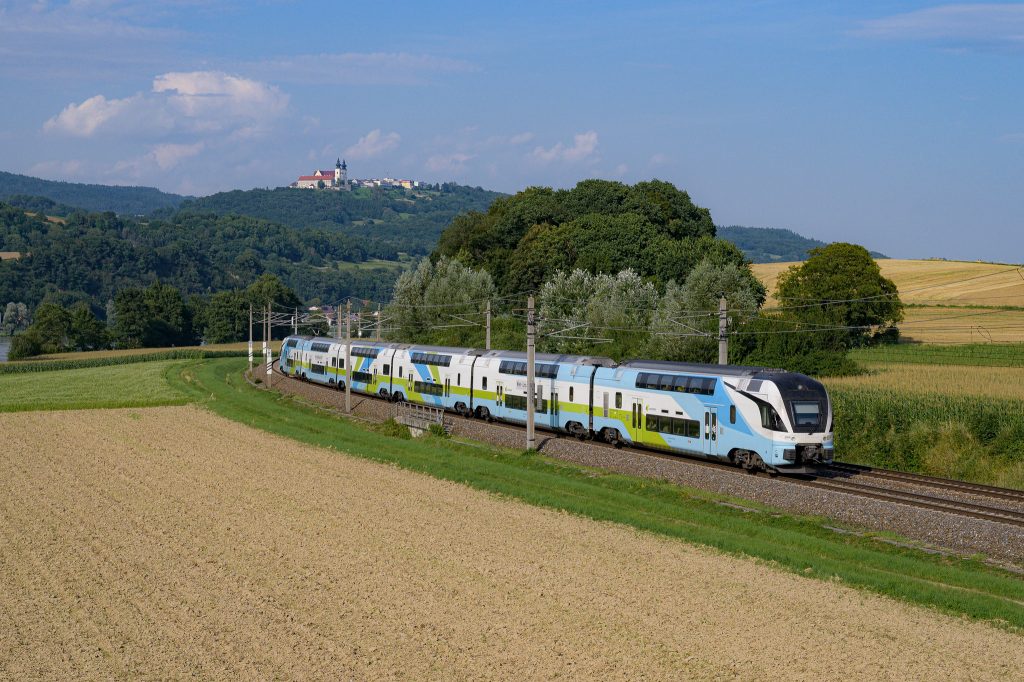
2021 – The Austrian climate ticket
It’s another invention of the Austrian government. Since Tuesday 26 October 2021, Austrians have been able to take advantage of a state-subsidised year-round card allowing them to use public transport in the country – trains, trams and buses, including private companies – for the price of €1,095 a year or €21 a week, a ticket that allows unlimited use of public transport. According to analysts, this would have cost the Austrian state budget half a billion euros a year by 2023.
The “Klimaticket Ö” is not an ÖBB ticket, even though they are in the majority. Apart from the particularities of Vienna (the VOR would have adopted its own fare policy), it is intended for all operators. This ticket was therefore valid on long-distance trains, the segment in which WESTbahn works. It thus differs from its German counterpart at €9 (2022) and €49 (2023), which was only valid on regional services, excluding ICE, Thalys, Flixtrain and others.
This was well received by WESTbahn: holding a ‘Klimaticket Ö’ meant Premium Economy seats at no extra cost, a clever move in terms of building customer loyalty, especially among those not yet familiar with WESTbahn.
New 3rd generation KISS trains
The Kiss 3 trainsets were due to enter commercial service on 31 August 2021. By the changeover in December 2021, 14 of the 15 Kiss 3 trainsets had been delivered, replacing all the others that had left Deutche Bahn.
2022 – New management, new destinations, new Kiss
After ten years at the helm of WESTbahn Management GmbH and many years on the Board of Rail Holding AG, Erich Forster is retiring from his active professional career. He will be succeeded from 1 March 2022 by Thomas Posch and Florian Kazalek, who are members of the Board of Directors of Rail Holding AG and Executive Directors of WESTbahn Management GmbH.
Planned for December 2021, the extension to Munich was delayed by a few months. “The reason for this is that the manufacturer of our trains (Stadler) was unable to complete the homologation for Germany in time. We are currently assessing the situation in such a way that we will be starting services to the Bavarian capital in April,” explained the operator at the time. So it was not until April 2022 that the KISS 3s reached the Bavarian capital’s main station.
All services were now operated by the 15 third-generation Stadler KISS trains.
2023
On 1 August, WESTbahn finally became a partner of the VOR, Austria’s largest transport association around Vienna, which brings together public transport in the eastern region. Valid VOR tickets could therefore be used on WESTbahn trains in the VOR’s defined area between Vienna and Amstetten. An open access operator associated with the local public service, that was something new.
There was talk for a while of transferring the Vienna-Salzburg mainline service to subsidised services. Major works are planned on the Vienna-Salzburg line in 2024 and there was talk of guaranteeing hourly operation, even if there was a deficit.
This idea of the Ministry, which was rather well received, was abandoned in spring 2023 for obscure reasons. What’s more, this type of direct award had to be notified before 15 December 2023, the final date for the whole of Europe under the provisions of the Fourth Railway Package.
Even more to the West
For the Christmas holidays in December 2023, two thirds more WESTbahn trains linked the Tyrol to Vienna West. The new direct link to Vorarlberg has been connecting Bregenz on Lake Constance since 10 December. “The strong demand in the first few weeks shows that our offer on the WEST route has proved its worth and that our passengers can rely on the reliability and high standard of the WESTbahn service. We want to maintain this high standard at WESTbahn and continue to expand this year“, emphasised WESTbahn Managing Director Florian Kazalek.
2024-2025
Stuttgart
From 15 December 2024, Westbahn trains were extended from Munich to Stuttgart, via Augsburg, Günzburg and Ulm, with two round trips per day, putting Vienna 6.5 hours from Stuttgart. This new connection strengthened the company’s presence in long-distance transport in southern Germany. After Flixtrain, Deutsche Bahn now has a second competitor on its own routes.
In March 2025, WESTbahn announced that it had signed a contract with Stadler for the purchase of three SMILE railcars capable of 250 kph and operating under 15 kV, 25 kV 50 Hz AC and 3 kV DC. This equipment, similar to SBB’s Giruno trainsets, is approved for operations in Austria, Germany, Switzerland and Italy. 🟧
[TOP]
Main line • Intercity • New mainline operators • Austria • Lexical
